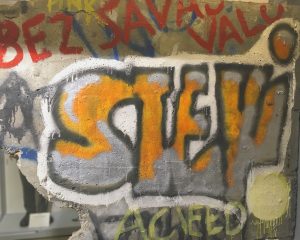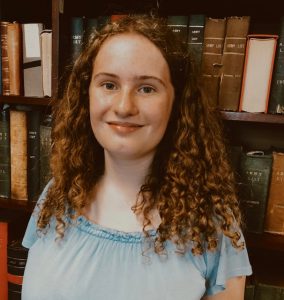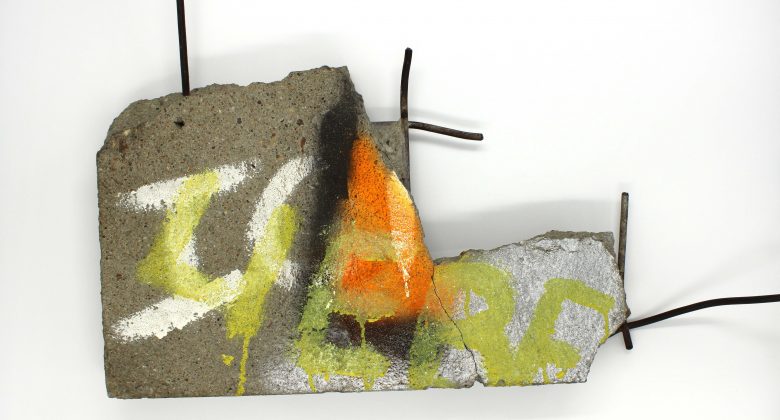In April of this year I went on week long school trip to Berlin with the History department from my school. In the past century Berlin and Germany have been at the epicentre of history changing events, right from Kaiser Wilhelm and the assassination of Archduke Franz Ferdinand of Austria to the dark years of the Nazi regime, right through to the Cold War and the “red menace” in the East of Germany with the constant fear of nuclear war. Whilst in Berlin we didn’t have a moments rest, with such a rich (though often dark) history we were able to visit some of the key monuments which impacted World history.
Whilst I was in Berlin we went and saw key places such as Check Point Charlie, the Brandenburg Gate, the Reichstag (now known as the Bundestag) and a museum built in the ex-Stasi headquarters. Whilst in Berlin we also saw some more unique places such as a controversial Soviet war memorial in the Tiergarten and a unique immersive museum dedicated to what life was like in East Berlin during the Communist regime. The whole trip was absolutely fascinating and an amazing experience. It’s important to remember the reason as to why we were there. Amidst the jolly tourism and Currywurst stalls there is a turmoiled history and a message we need to learn and remember for future generations.

Work Experience at Bodmin Keep
Whilst on my work experience here at Cornwall’s Regimental Museum I was surprised at how involved the DCLI was in major wars, I never knew that Cornwall had once had such a large military presence. What intrigued me was about how The Light Infantry were present at the rise and fall of the Berlin Wall. Here at the museum we have a large chunk of the Berlin Wall and a room dedicated to the rise and fall of it. For many the fall of the Berlin wall was well in their lifetime, you may know somebody who was present at the fall in 1989. For younger people who wouldn’t remember a divided Germany, it can be difficult to imagine an entire city divided by a wall. The entire concept sounds like something out of a dystopian novel, a city in which one side is completely free and the other a strictly controlled Communist state, an idea which sounds straight of a George Orwell novel. Yet it was a very real reality for those who lived in the East and West Germany.
The Light Infantry
The Light Infantry spent time in Ireland amidst all the terror of the IRA however in January 1989 the battalion moved to Brooke Barracks (Berlin). The allied troops (including the LI) had diplomatic immunity to travel over the wall through Check point Charlie into East Berlin as long as they wore service gear or a mess jacket. Because the economy in the East had never really recovered after WW2 (though was comparatively better off compared to rest of the communist states), the rate of inflation was high in the East, one West German Deutschmark could buy 10 East German Ostmarks meaning the Allied soldiers, including the LI, could afford the best of everything the East had to offer, such as the best restaurants, nights out to the theatre and selective goods (East Germany had an abundance of skilled workers yet paid them considerably less than their western counterparts, the result was poor quality goods, so decent commodities were limited).
Training for the LI took place mainly in West Germany however there was a considerable amount of troops in West Berlin. Realistically if war did breakout Berlin is well in the Soviets’ territory. There was limited strategic impact of the allied troops being in West Berlin however the army’s presence was a show of force from the NATO powers. For the Light Infantry stationed in Berlin there was regular 4am call-outs to ensure that the Brigade was ready for any sudden outbreak.
A Fatal Mistake
A fatal mistake was made by Günter Schabowski at a press conference on the 9th November 1989, by accident he prematurely announced that restrictions on travel visas would be lifted, when eager reporters asked when this would take place he panicked and said “Immediately, without delay.” This then lead to the mass exodus and panic of East Germans traveling in the night across the border to greet their families and long lost friends over in the East. This was a fatal mistake for the Soviet Union and was a catalyst for the fall of communism during the late 80’s and early 90’s.
In the weeks that followed the Fall of the Wall the soldiers time was spent providing aid to refugees, such as setting up temporary accommodation and handing out cups of tea and coffee ( for many east Germans items like tea and coffee where seen as a rarity).
Whilst researching I learnt that Germans in the now unified country wanted to make the 9th of November (fall of the Berlin Wall) a national holiday. When I first heard it I thought it sounded like a good idea, 9th November is also the date of the 1918 abdication of Kaiser Wilhelm II and declaration of the Weimar Republic, the first German republic. This also adds to the positive celebrations associated with German history on the date. Then I wondered why it wasn’t a national holiday. What I didn’t know is that there are also some very dark events that happened in Germany on this very date such as the 1923 Beer Hall Putsch, which was Adolf Hitler’s first failed attempt, with aid from the SA to try and seize power. Later into the Nazi regime the 9th of November also marks the date of the beginning of the Kristallnacht, or more commonly known as the Night of the Broken glass (the beginning of the “final solution” in which all Jewish businesses where smashed and set on fire by SA troops).
In the months following the fall off the Berlin Wall the Light Infantry remained in Berlin and continued to train in the world-renowned Olympic Sports Complex. After a farewell Retreat the Battalion moved out of Berlin as it prepared for new combat, such as in the Gulf and Defence action in Saudi Arabia.
After writing this blog one thing that I realised had shocked me was this; whilst I was away in Berlin, 933.5 miles away from home, in a country I had never been to, with a language I couldn’t understand a single word of, I wasn’t really that far away at all. Just 30 years ago the Light Infantry had occupied the city, amidst the universal fear of a devastating war wondering what the future would hold.
by Meggie Slater
Meggie Slater joined us at Cornwall’s Regimental Museum to gain work experience. She is a keen Historian and wants to study Palaeontology at University. Meggie’s contribution during her time on work experience has been in-valuable; as well as writing blogs, she has handled the collections, welcomed visitors, worked in the shop, taken images using the light box and helped in the archive! Thank you for all your hard work Meggie and good luck with the rest of your studies!


